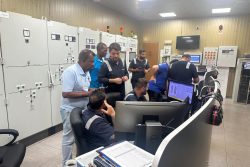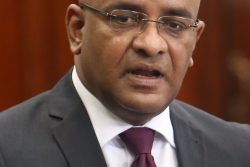Dear Editor,
The 30th of September marks the 150th anniversary of the Devonshire Massacre of the five East Indian indentured workers during the Devonshire Castle uprising in 1872. Not surprising, several Muslims were involved in the rebellion. The cause of death was gunshot wounds (to rioters). This all started when almost 300 plantation workers began protesting on the 29th of September for better working conditions and equitable pay for the high workload the Gora Sahib (Whiteman) demanded. This culminated in their horrible deaths on 30th September 1872.
Based on the biodata extracted from: (a) the 1872 Register of Deaths in British Guiana, (b) the ships’ register of Indian Immigrants introduced into the Colony of British Guiana and (c) the ship’s log from the SS Far East, here is a snapshot of these lost souls, they were not just names on paper but they were someone’s son, brother, uncle, husband or father and many of their dependents who relied on them would pay a bitter economic and mental health price for their loss.
1. Mucksoodally (Maqsood Ally, Musalman) was 24 years old, standing at 4 feet 10.5 inches, very short for his age, but certainly stood tall against the injustices being inflicted on the sugar workers by the British colonial police. He came on the Earl Russell on 12th April 1865 to British Guiana and indentured to plantation Hoff Van Aurich then after serving one term, was transferred on 29th September 1870 to Devonshire Castle only to meet his death two years later at age 31.
2. Becarro (Bakaro/Bakr, Mullah) was a teenager, just 18 years old and a passenger on the Earl Russell which arrived in British Guiana on 12th April 1865. He was sent to the Zorg plantation. After serving his first term, Bakaro was transferred to Devonshire Castle in 1870, only to be gunned down exactly two years later at age 25. Assuming it was from his immigration certificate, Bakaro/Bakr’s caste was stated as, ‘Mullah’ and he was age 18. It would be accurate to assume that he had memorized the Holy Quran at a very young age and was taught the “Sunna,” (the teachings of the Holy Prophet (OHBP) for him to have achieved this status so young.
Maqsood Ally and Bakaro/Bakr were Jahajis (shipmates). Initially sent to different plantations but were later reunited in 1870 when they were both transferred to Devonshire Castle. These two men who prayed and ate together would also die fighting together for a just cause.
3. Kaula Khan (Kala Khan, Musulman) age 25, came to British Guiana on the Shand on 28th May 1854 and was indentured to Taymouth Manor. There Kala Khan served his first term, and he was transferred to Devonshire Castle serving three more terms. Kala Khan spent many hard years on the plantation to support his family. Khan too was a leader in the uprising and was massacred after about 20 years on the sugar plantations in British Guiana. Kala Khan was 43 when he was gunned down.
4. Akloo (Dhanook) age 32, came on The Apelles on 4th February 1866 and indentured to Devonshire Castle. He completed his first term and had just started his second term when he was also murdered at age 38.
5. Buldewo (Baldeo, Gowala) was 29 when he arrived in the colony. He came on the SS Far East on 20th July 1869 and was indentured to Devonshire Castle, he served just three years of his first term when he was also brutally gunned down at age 32.
We honour the memory of these brave men who made the ultimate sacrifice on the 30th of September 1872. A conversation to bring closure of this and many other fatal uprisings should commence between the British and the descendants of these victims. These men had immediate and extended families in Guyana and India who depended on them. The trauma and pain resonate among their descendants to this day.
Sincerely,
Shabnam Alli
Ray Chickrie





